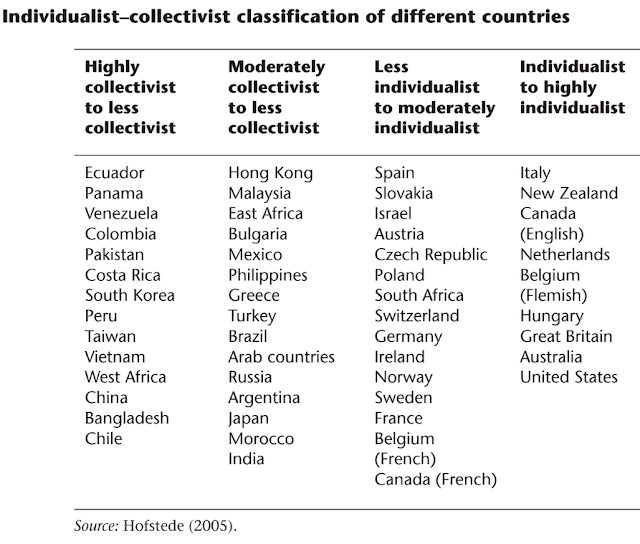Conflict Management Styles
It may be interesting to look at the Hofstede Cultural Dimensions and see if your family's culture comes from a more collectivistic (displaying concern for others) or individualistic (focusing on concern for self) background.

I wasn't excited to see that Taiwan was on the far collectivist side, but can't say that I'm surprised. It does explain a couple of things in my life.
In every workplace (and family), there are differing opinions and potential for conflict. The Thomas–Kilmann Conflict Mode Instrument describes conflict management styles ranging from competing, collaborating, compromising, to avoiding and accommodating. The more assertive one is, they are more likely to compete, and the more cooperative and less assertive one is, they tend towards accommodating.

Studies also show, unsurprisingly, that women prioritize relationships over agenda and are more likely to be cooperative, whereas men prioritize their agenda over relationships (Steen & Shinkai, 2020).
The Dutch Test for Conflict Handling minces fewer words and uses more direct terms of Forcing, Problem Solving, Avoiding, and Yielding, highlighting that those who "force" others display the most concern for self versus concern for others, whereas those who have more concern for others over themselves, tend to "yield."


I wasn't excited to see that Taiwan was on the far collectivist side, but can't say that I'm surprised. It does explain a couple of things in my life.
In every workplace (and family), there are differing opinions and potential for conflict. The Thomas–Kilmann Conflict Mode Instrument describes conflict management styles ranging from competing, collaborating, compromising, to avoiding and accommodating. The more assertive one is, they are more likely to compete, and the more cooperative and less assertive one is, they tend towards accommodating.

Studies also show, unsurprisingly, that women prioritize relationships over agenda and are more likely to be cooperative, whereas men prioritize their agenda over relationships (Steen & Shinkai, 2020).
The Dutch Test for Conflict Handling minces fewer words and uses more direct terms of Forcing, Problem Solving, Avoiding, and Yielding, highlighting that those who "force" others display the most concern for self versus concern for others, whereas those who have more concern for others over themselves, tend to "yield."

What is the biggest issue here? When there is a mismatch, often culturally, personality-wise, or even gender-based, between assertiveness and cooperativeness or concern for self v. concern for others. How can we compromise or problem solve in these situations? Or do we? Once again, this may happen at work or at home, and unfortunately, America is a country where the squeaky wheel gets the WD40 all day and all night, and those who have the most concern for themselves rather than others (even their own family or children), who force others, often get their way, or at least assume they always will.
References:
Sinskey, J. L., Chang, J. M., Shibata, G. S., Infosino, A. J., & Rouine-Rapp, K. (2019). Applying onflict management strategies to the pediatric operating room. Anesthesia & Analgesia, 129(4), 1109–1117.
Steen, A., & Shinkai, K. (2020). Understanding individual and gender differences in conflict resolution: A critical leadership skill. International Journal of Women’s Dermatology.
References:
Sinskey, J. L., Chang, J. M., Shibata, G. S., Infosino, A. J., & Rouine-Rapp, K. (2019). Applying onflict management strategies to the pediatric operating room. Anesthesia & Analgesia, 129(4), 1109–1117.
Steen, A., & Shinkai, K. (2020). Understanding individual and gender differences in conflict resolution: A critical leadership skill. International Journal of Women’s Dermatology.


I am very Glad to see your informational Post! With all the 9780323795302 NCLEX review guides available online and in educational libraries, it's difficult to find something comprehensive and reliable. The Saunders NCLEX review guide is the one that you're looking for. Passing the RN exam is your golden ticket to enter the practice of nursing.
ReplyDelete